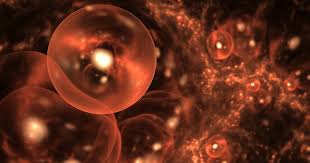
Breaking News
 Which party represents Americans?
Which party represents Americans?
 Even The Best AI Scenario Is The End Of Everything We've Ever Been
Even The Best AI Scenario Is The End Of Everything We've Ever Been
 In Simulated War Games, Top AI Models Recommended Using Nukes 95% Of The Time
In Simulated War Games, Top AI Models Recommended Using Nukes 95% Of The Time
 Rising Cancer Rates, the Globalist Agenda, and the Big Business Land Grab Making You Poor
Rising Cancer Rates, the Globalist Agenda, and the Big Business Land Grab Making You Poor
Top Tech News
 New Spray-on Powder Instantly Seals Life-Threatening Wounds in Battle or During Disasters
New Spray-on Powder Instantly Seals Life-Threatening Wounds in Battle or During Disasters
 AI-enhanced stethoscope excels at listening to our hearts
AI-enhanced stethoscope excels at listening to our hearts
 Flame-treated sunscreen keeps the zinc but cuts the smeary white look
Flame-treated sunscreen keeps the zinc but cuts the smeary white look
 Display hub adds three more screens powered through single USB port
Display hub adds three more screens powered through single USB port
 We Finally Know How Fast The Tesla Semi Will Charge: Very, Very Fast
We Finally Know How Fast The Tesla Semi Will Charge: Very, Very Fast
 Drone-launching underwater drone hitches a ride on ship and sub hulls
Drone-launching underwater drone hitches a ride on ship and sub hulls
 Humanoid Robots Get "Brains" As Dual-Use Fears Mount
Humanoid Robots Get "Brains" As Dual-Use Fears Mount
 SpaceX Authorized to Increase High Speed Internet Download Speeds 5X Through 2026
SpaceX Authorized to Increase High Speed Internet Download Speeds 5X Through 2026
 Space AI is the Key to the Technological Singularity
Space AI is the Key to the Technological Singularity
 Velocitor X-1 eVTOL could be beating the traffic in just a year
Velocitor X-1 eVTOL could be beating the traffic in just a year
Kidney stone drug found to starve pancreatic cancer cells to death

A research team at Columbia University has made an exciting discovery in this area, finding that a compound currently under development for a rare kidney stone disease can starve pancreatic cancer cells of a key amino acid they depend on, a technique that proved to stop tumor growth in mice.
"We're very encouraged by these results," says Kenneth P. Olive, PhD, senior author of the study. "Pancreatic cancer is a uniquely lethal disease, with an average survival rate of just six months after diagnosis. We're in desperate need of new treatments."
One of the ways pancreatic cancer causes harm is by driving the production of oxidants, which can be fatal to healthy cells in the body but leave the tumor cells intact. The reason for this is an amino acid called cysteine, which the tumor cells import in huge quantities and allows them to produce molecules that neutralize the toxic effect of the oxidants.



